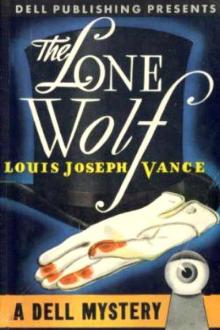Other People's Money by Emile Gaboriau (best 7 inch ereader txt) 📗

- Author: Emile Gaboriau
Book online «Other People's Money by Emile Gaboriau (best 7 inch ereader txt) 📗». Author Emile Gaboriau
“Poor mother,” he thought. “I am sure I am making her very unhappy; but how can I help it?”
This was the first time that he had been in the street since his farther’s disaster had been known; and the impression produced upon him was painful in the extreme. Formerly, when he walked through the Rue St. Gilles, that street where he was born, and where he used to play as a boy, every one met him with a friendly nod or a familiar smile. True he was then the son of a man rich and highly esteemed; whereas this morning not a hand was extended, not a hat raised, on his passage. People whispered among themselves, and pointed him out with looks of hatred and irony. That was because he was now the son of the dishonest cashier tracked by the police, of the man whose crime brought disaster upon so many innocent parties.
Mortified and ashamed, Maxence was hurrying on, his head down, his cheek burning, his throat parched, when, in front of a wine-shop,
“Halloo!” said a man; “that’s the son. What cheek!”
And farther on, in front of the grocer’s.
“I tell you what,” said a woman in the midst of a group, “they still have more than we have.”
Then, for the first time, he understood with what crushing weight his father’s crime would weigh upon his whole life; and, whilst going up the Rue Turenne:
“It’s all over,” he thought: “I can never get over it.” And he was thinking of changing his name, of emigrating to America, and hiding himself in the deserts of the Far West, when, a little farther on, he noticed a group of some thirty persons in front of a newspaper-stand. The vender, a fat little man with a red face and an impudent look, was crying in a hoarse voice,
“Here are the morning papers! The last editions! All about the robbery of twelve millions by a poor cashier. Buy the morning papers!”
And, to stimulate the sale of his wares, he added all sorts of jokes of his own invention, saying that the thief belonged to the neighborhood; that it was quite flattering, etc.
The crowd laughed; and he went on,
“The cashier Favoral’s robbery! twelve millions! Buy the paper, and see how it’s done.”
And so the scandal was public, irreparable. Maxence was listening a few steps off. He felt like going; but an imperative feeling, stronger than his will, made him anxious to see what the papers said.
Suddenly he made up his mind, and, stepping up briskly, he threw down three sous, seized a paper, and ran as if they had all known him.
“Not very polite, the gentleman,” remarked two idlers whom he had pushed a little roughly.
Quick as he had been, a shopkeeper of the Rue Turenne had had time to recognize him.
“Why, that’s the cashier’s son!” he exclaimed. “Is it possible?”
“Why don’t they arrest him?”
Half a dozen curious fellows, more eager than the rest, ran after him to try and see his face. But he was already far off.
Leaning against a gas-lamp on the Boulevard, he unfolded the paper he had just bought. He had no trouble looking for the article. In the middle of the first page, in the most prominent position, he read in large letters,
“At the moment of going to press, the greatest agitation prevails among the stock-brokers and operators at the bourse generally, owing to the news that one of our great banking establishments has just been the victim of a theft of unusual magnitude.
“At about five o’clock in the afternoon, the manager of the Mutual Credit Society, having need of some documents, went to look for them in the office of the head cashier, who was then absent. A memorandum forgotten on the table excited his suspicions. Sending at once for a locksmith, he had all the drawers broken open, and soon acquired the irrefutable evidence that the Mutual Credit had been defrauded of sums, which, as far as now known, amount to upwards of twelve millions.
“At once the police was notified; and M. Brosse, commissary of police, duly provided with a warrant, called at the guilty cashier’s house.
“That cashier, named Favoral,—we do not hesitate to name him, since his name has already been made public,—had just sat down to dinner with some friends. Warned, no one knows how, he succeeded in escaping through a window into the yard of the adjoining house, and up to this hour has succeeded in eluding all search.
“It seems that these embezzlements had been going on for years, but had been skillfully concealed by false entries.
“M. Favoral had managed to secure the esteem of all who knew him. He led at home a more than modest existence. But that was only, as it were, his official life. Elsewhere, and under another name, he indulged in the most reckless expenses for the benefit of a woman with whom he was madly in love.
“Who this woman is, is not yet exactly known.
“Some mention a very fascinating young actress, who performs at a theatre not a hundred miles from the Rue Vivienne; others, a lady of the financial high life, whose equipages, diamonds, and dresses are justly famed.
“We might easily, in this respect, give particulars which would astonish many people; for we know all; but, at the risk of seeming less well informed than some others of our morning contemporaries, we will observe a silence which our readers will surely appreciate. We do not wish to add, by a premature indiscretion, any thing to the grief of a family already so cruelly stricken; for M. Favoral leaves behind him in the deepest sorrow a wife and two children,—a son of twenty-five, employed in a railroad office, and a daughter of twenty, remarkably handsome, who, a few months ago, came very near marrying M. C. ——.
“Next—”
Tears of rage obscured Maxence’s sight whilst reading the last





Comments (0)